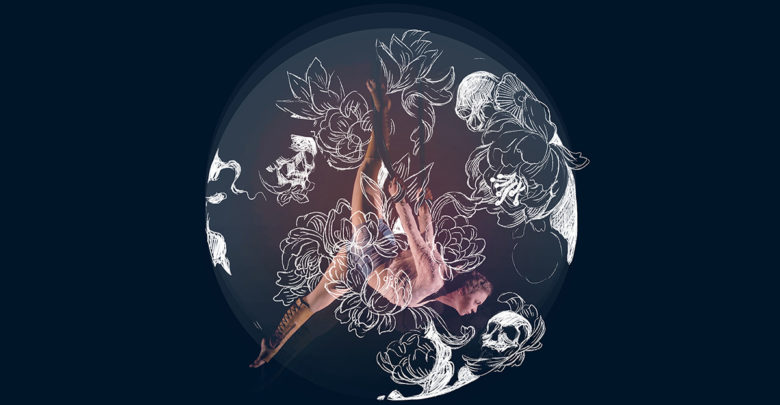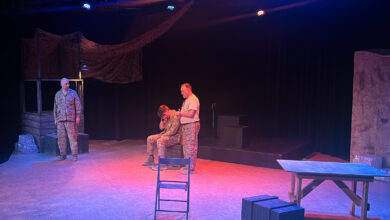Theatre Review: Persephone Bound
Persephone Bound rewrites the Persephone myth and provides a chilling indictment of the legal system
 Supplied
SuppliedContent warning: this article contains mentions of sexual assault.
Combining aerial dance, percussion, and spoken poetry in an interdisciplinary work of experimental theatre, Persephone Bound was created in partial fulfillment of the MFA Theatre Practice degree for Leda Davies and performed with Jed Tomlinson.
The show is a modern re-telling of the Persephone myth. Persephone is a young girl, a “maiden,” raped by Hades and taken to the Underworld, where she is trapped for six months of the year. In traditional mythology, Persephone may seem to have very little control over her fate, but this show turns that trope on its head as Persephone pursues legal justice and grapples with grief and trauma.
The audience finds themselves alternating between the college party where Persephone was raped (The Underworld), the courtroom where she is faced with an antagonistic judge in a horrifying reality-legal show, “Her Word Against His” (The Court), and a liminal space where she grapples with her experience of the trauma and her memory of her assault (The River Styx). The show follows Persephone’s internal struggle for healing and external struggle for justice.
The physical components of the show were the strongest — Davies is a remarkably talented aerial performer who moved with perfect grace and ease through the air, pulling the audience into Persephone’s emotional journey through the use of dance and movement. Alternating between control and utter helplessness as she moves through space, Persephone’s emotions are on full display in Davies’ choreography and performance.
The percussive element is another strong component of the show, building tension and foreboding as the audience watches Persephone’s anger and growing despair in the face of a bureaucratic legal system that put her attacker’s (or, as the judge, Zeus, calls him, “the student”) needs above her own.
However, the script itself was at times too heavy-handed. While Jed Tomlinson offered a compelling performance as Zeus, his antagonism was often too blatant in a way that doesn’t mirror the subtle pervasiveness of misogyny in the actual justice system. It’s easy to detest a judge who insists on calling Persephone “Ms. Irrelevant,” but in reality the court system is much more insidious as it asks women what they wore, if they consumed alcohol, or if they were alone at the time of their assault.
Certain moments were also intended to be darkly funny — such as a staged “sponsor message” about a “rape kit” that demands victims avoid activities such as bathing or using the restroom — but these came off as uncomedic and obvious in contrast to the much more nuanced aspects of the show.
However, some moments of the script undeniably shone. Davies’ delivery of Persephone’s monologues, often spoken while suspended in mid-air, were powerful, and the touchstone line of the play — “I am determined to be seen” — was moving and authentic.
Ultimately, the show offered a chilling indictment of the legal system that is especially pertinent in the #MeToo era and the wake of Brett Kavanaugh’s nomination to the US Supreme Court. But it is also an empowering depiction of one woman taking control over her own life, healing from her trauma, and refusing to be only a faceless, “irrelevant” victim.




